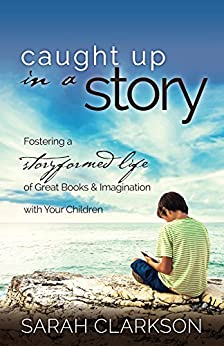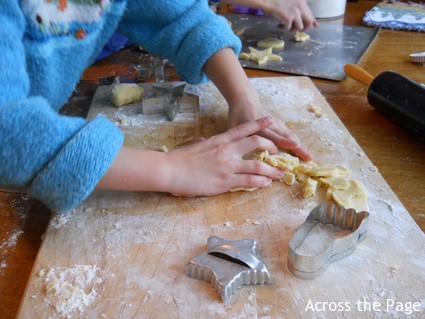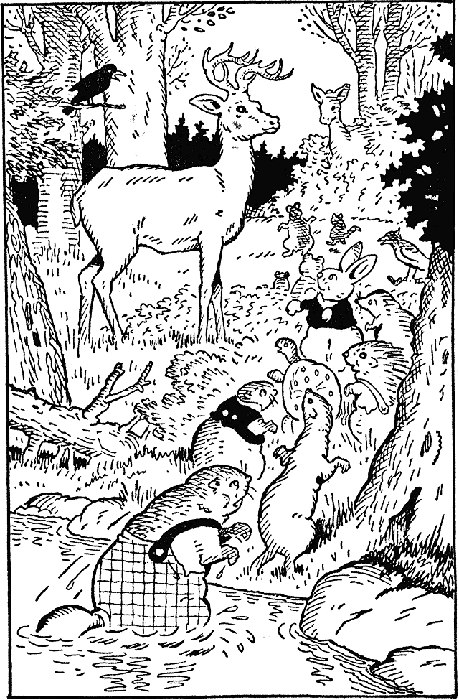Caught Up In a Story
I started Sarah Clarkson’s Caught Up In a Story in 2018, but I ended up setting it aside. Picking it up again recently, I found the time was right. The book reminded me of how reading can breathe life into the imagination and color all of life. This reminder has been motivating in a season that finds me needing the enchantment books can provide.
Clarkson calls this phenomenon of being haunted, and in some ways invigorated, by the imaginative and spiritual nourishment of reading a “storyformed life.” Her tale is part memoir, part literary criticism, and part tribute to books that have inspired her worldview and imparted encouragement and stamina at key moments in her life.
Although I felt the book became repetitive by the end, I found much I could affirm and relate to. Clarkson’s insights are deep, and she expresses them lyrically. When she writes of the “literacy rich home environment” as the “golden key of childhood development,” I nodded enthusiastically. When she speaks of the importance of reading in the formation of an independent, reflective self, I nodded soberly, thinking of the largely destructive influence social media appears to have had on young students who have never known what it is to relate primarily in-person with others. And when she reflects on imagination as a “necessary skill in self-development,” I thought, “Yes”:
To read a great book is also to form the habit of imagining. We know imagination is vital, but children need to learn the habit of using it, of being imaginative. We are busy, busy people these days, and children, when immersed in countless activities and technologies, will become just as anxious, harried, and bored as adults are prone to become when life is lived too swiftly.
Most of all, I was struck by the similarity in Clarkson’s reading journey. Tolkien, Lewis, Wendell Berry, and Elizabeth Goudge all became close literary “friends” to her, in the same way they’ve done for me. The books are different, but the response is the same. What Gentian Hill did for her, The Scent of Water did for me; what Hannah Coulter did for her, The Memory of Old Jack did for me. Tolkien was a taste I didn’t acquire till adulthood, but since then I’ve found much to read and learn from him, even when the going is tough. And Lewis took up residence on my imaginative library on the “indispensable” shelf long ago. This gave me a sense of kinship with Clarkson.
Clarkson is homeschooled, and she directs her book to homeschoolers. (Among other things, this audience will find much to savor in the book lists she provides.) I appreciated her honesty in detailing the loneliness she has at times felt in making the transition from child to adult. This is not unique to homeschoolers, and perhaps not felt by everyone, but I think it’s not unusual for a thoughtful Christian young person to look around at various points along the way and feel a bit starved for like-minded companions. Books are not a substitute for finding these kinds of relationships, but they do help to furnish the mind with a cast of characters who affirm to the beauty and joy of a life of faith, and of the values of heroism, courage, and self-giving. As Clarkson explains, this can be food for the soul.





